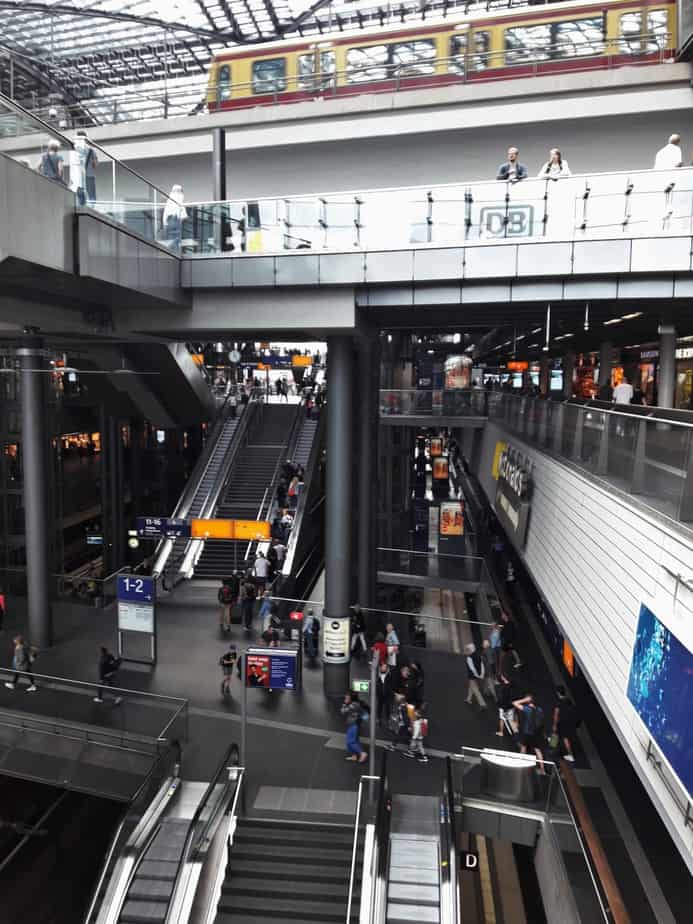
Recently there was a report by Centre for Science and Environment that Delhi Metro Rail Corporation (DMRC) is the second most-unaffordable metro system when it comes to the percentage of income spent on it by commuters. DMRC rubbished the claim.
This has, however, initiated an interesting debate. DMRC has had a profound impact on the way people commute in Delhi in the last 10 years as its network grows denser. Delhi is no different from other metropolitan centres across the globe where Metro is a lifeline. In terms of fares, Delhi Metro is much cheaper compared to its counterparts in European cities.
Currently, DMRC rates per trip are from Rs 10 to 60 depending on the distance travelled. In Berlin, which is considered a relatively cheaper city in Europe, a single metro ticket costs Euro 2.40 (a Euro is worth Rs 80). DMRC fares per trip are much cheaper than in any city in Europe.
Not just in Berlin, in most of the European cities there are other cheaper options available. For instance, a day ticket–which may cost from Euro 7 to Euro 18 — will allow the passenger to make unrestricted number of trips in a day.
Apart from Metro, the ticket is valid in buses and trams. In some cities, the day ticket is valid for regional trains — like EMU in Delhi — for shorter distances, within the city limits. Then there are options to buy a weekly, monthly or even annual ticket. Vienna’s annual ticket costs Euro 365, which translates to one Euro a day.
DMRC doesn’t issue daily or monthly tickets. Instead issues a travel card, rechargeable with at least Rs 200. It’s like a debit card for using Metro, the fare being deducted every trip.
Delhi, with more cars than the population of most European cities, is a complicated case. The numbers are staggering. Some 2.7 million people commute daily on metro alone, and vagaries of nature, rains in particular, have a destabilising effect on the flow of traffic and general life.
A hike in Metro fares — or for that matter buses — makes big news. And in most cases price hike of public transport is a political decision. Recently, when DMRC — owned by both Union and Delhi governments — hiked the fares, reverberations were felt in the corridors of power.
A few months ago, there was a hike in the parking charges, close on the heels of the fare hike. The idea of having big parking lots at DMRC stations is to facilitate commuters who can drive to the nearest station and ride the Metro to commute for longer distances. This has helped in decongestion of roads.
Expectedly, Delhi Chief Minister Arvind Kejriwal opposed the move. In a tweet he expressed his dismay, “These steps will completely kill Delhi Metro n increase congestion and pollution on roads. Sad (sic).”
Union Urban Development Minister Hardeep Singh Puri tweeted in defence of DMRC’s hike in fares which is ‘not amongst the highest in the world’. Puri made an important point, it’s not the trip cost of Delhi Metro that’s expensive but, “the total journey cost of commuters who, because of poor integration of different systems, poor connectivity and frequent interchanging of modes, end up paying a lot for commuting. Door-step connectivity is required.”
The public transport network in Europe, by contrast, is well integrated and ensures ‘doorstep connectivity.’ Whether it’s Helsinki, Stockholm, Berlin, Cologne or Rome, the Metro allow pets, cycles and perambulators. Of course, passengers in some cities in Helsinki are discouraged from commuting with their cycles during busy office hours. In Berlin, commuters are even allowed to consume alcohol in transit. Of course, DMRC doesn’t even allow commuting with a sealed bottle of an alcoholic beverage.
A distinction needs to be made. In most of the big cities in Europe, Metro or local rail transportation is more than a hundred years old. It’s not just a mode of transport, it is entrenched in the popular cultural of the various cities. The result is for everyone to see. There’s never a mad rush inside a compartment even during busy hours. No one struggles to get a seat. The popular philosophy is to be on the move without hampering the other’s movement.
Lately, DMRC has taken steps to integrate various modes of transport and provide an effective feeder transport system to DMRC.
Delhi Transport Corporation (DTC) and cluster bus passengers will be able to use their ‘Metro smart cards’ to pay for their bus rides. It will be called the ‘common mobility card.’
A passenger on a bus will have to present the Metro smart card to the conductor and the fare will be automatically deducted when the card is swiped.
There are 13 lakh active Metro smart card users in Delhi. And, the ridership of DTC buses has come down to 30 lakh from over 45 lakh in just a span of three years. This partnership promises to be good for both DTC and DMRC.
DMRC has a lot to learn from other cities to integrate various modes of transportation and ensure last mile connectivity.
A physiotherapist in Rohini was allegedly attacked by her brother-in-law, disguised as a woman, before…
The eighth edition of Master Strokes, curated by Kishore Labar, brings together thirty-six artists at…
National Zoological Park to introduce single-day animal adoption from March, allowing visitors to mark special…
The Delhi High Court suspended actor Rajpal Yadav’s sentence till March 18 after he deposited…
Artist Shikha Sheoran’s exhibition Zikr presents contemplative pencil and charcoal portraits exploring stillness, vulnerability and…
Delhi government has sought details from PWD on vigilance and CBI cases related to Arvind…